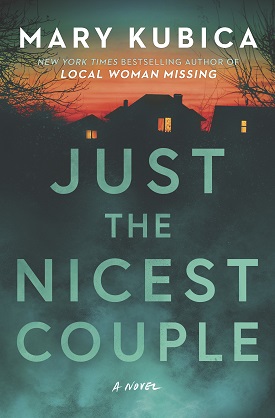 Synopsis:
Synopsis:
Two couples, two close friends, one missing husband . . .
Dr. Jake Hayes is missing. That much is certain.
At first, his wife, Nina, thinks he just didn’t come home because of their heated fight the night before. But then a day goes by. Two days. Five.
Still, Jake is nowhere to be found, including at work, which is completely uncharacteristic.
Lily Scott, Nina’s friend and coworker, is convinced she was the last person to see Jake before he went missing. After Lily relates the traumatic details of her encounter with Jake to her husband, Christian, they decide that no one can find out what happened leading up to Jake’s disappearance . . . especially Nina.
But Nina is searching for her husband, and she won’t stop looking until the truth is revealed.
Just the Nicest Couple, replete with delicious lies and shocking betrayals, demonstrates how even the deepest secrets will always find a way to the surface.
Review:

Bestselling author Mary Kubica earned a Bachelor of Arts degree in History and American Literature from Miami University in Oxford, Ohio, before embarking on a career as a high school history teacher. Her thrillers, including The Good Girl, Pretty Baby, Don’t You Cry, Every Last Lie, When the Lights Go Out, The Other Mrs., and Local Woman Missing. To date, her novels have sold over two million copies worldwide and been translated into more than thirty languages.
Kubica says she always loved to write but did not set out to draft thrillers. Rather, she found her way to the genre by accident after writing in a variety of other styles, primarily general women’s fiction. But she knew something was missing because she repeatedly found herself bored with her own manuscripts before she finished them. She began penning thrillers “totally by accident.” The Good Girl was meant to be a love story, but she decided to add some mystery elements, having no idea that the story would end up being “so dark and twisty.” She loved where the writing took her and knew immediately that she had found her niche.
Still, the road to publication was long and anything but a fairy tale. It was when she stepped away from teaching after the birth of her first child in 2005 that she began writing The Good Girl. After discovering how much she loved her new direction, she continued perfecting the manuscript for five years and became determined to get it published. She queried more than a hundred literary agents, and the three who were interested enough to read the whole book declined to represent her. Two years went by before one of those three agents reconnected with her and The Good Girl was finally published. It became an instant bestseller.
Just the Nicest Couple focuses on two couples living in Chicago suburb. Lily Scott is a high school algebra teacher and her husband, Christian, works as a market research analyst. Lily is pregnant and after three heartbreaking miscarriages, they are cautiously excited about the fact that she is nearing the end of the first trimester of the pregnancy, a milestone they did not previously reach. They have not told anyone that they are expecting again. They stretched their budget to purchase their dream home, set on the edge of a large forest with breathtaking views. Kubica modeled the locale after Waterfall Glen, a preserve “where I’ve trained for marathons. It’s beautiful, densely wooded with a limestone path that weaves between forests and beside ponds, and is filled with wildlife.” In his first-person narrative, Christian reveals he is excited that their dream of becoming parents seems to be closer to coming true every day and remains deeply in love with the wife who is, to him, beautiful, petite, and delicate. His protectiveness of Lily leads him into a moral quagmire.
In contrast, the marriage of Jake Hayes, a highly successful neurosurgeon, and Nina, who teaches English at the same high school as Lily, has hit a rough patch. The story opens on the day after they had a particularly vicious argument and Jake stormed out of the house. He did not return and is not answering Nina’s calls or text messages. She is growing increasingly worried. She explains in her first-person narrative that the two have been at odds over the amount of time she has been spending assisting her mother. At just sixty-two years of age, her mother has been healthy and able to live independently until recently. Now, not only is she unable to drive because she is suffering from macular degeneration (the wet form which is resistant to treatment and ultimately leads to blindness), she recently discovered a mass in her breast which is being evaluated. Nina is an only child and her mother raised her alone after her parents divorced due to her father’s infidelity. In time, he also abandoned Nina, who has remained close to and feels an obligation to care for her mother She and Jake have argued numerous times over what she describes as Jake’s jealousy and resentment about the amount of time and attention Nina spends caring for her mother’s needs, which detracts from their time together as a couple.
Lily and Nina are good friends and tell each other everything, according to Nina. And the two couples have occasionally socialized together. But as Nina is worrying about Jake’s whereabouts and the state of their marriage, Lily confesses to Christian that she lost one of the earrings he gave her as a fifth wedding anniversary present. It must have become dislodged when she happened upon Jake as she was walking in Langley Woods, the forest preserve behind their house. Jake confided in her that he was troubled about being unable to save a few patients recently and having marital problems with Nina, and led her down an unmarked trail, looking for deer. “He tried to kiss me,” Lily tells Christian, and the situation escalated. Lily claims to be unsure about Jake’s fate, but she “might have hurt him.” And then she ran back to her car as fast as she could. She is covered with scrapes and bruises, and did not report the incident to the police or anyone else, explaining that she “couldn’t bring herself to tell Nina because she didn’t want to hurt her like that. Nina would have been devastated if she knew what Jake tried to do.” Hours later, Lily is “haunted by what happened” and concerned about Jake’s well-being.
Kubica is known for crafting compulsive, fast-paced domestic thrillers featuring fascinating, fully developed characters. In Just the Nicest Couple, her four main characters are complex and compelling. Christian and Lily do, in fact, seem like a quintessentially nice young couple. They are educated, have solidly established themselves in their careers, and have settled into a home they love. Lily’s current pregnancy seems, so far at least, on track to end joyfully. Their marriage is a happy one. But the incident with Jake upends their peaceful domesticity. Christian is earnest, likable, and devoted to Lily, who has never previously given him a reason to distrust her. He details why they opt not to belatedly report Jake’s assault on Lily to the police, their search for Jake back at Langley Woods, and the increasingly desperate measures – most of which are by his design — they employ to ensure that if something untoward has happened to Jake, Lily will not be implicated. After all, Christian also must protect their unborn child.
In her alternating narrative, Nina details the tension in her marriage in the months leading up to Jake’s disappearance, her efforts to find him, and the unwavering support she receives from her mother. She also takes steps to protect her mother, who is vulnerable because of her visual impairment. Kubica thoughtfully explores Nina’s difficulty balancing the demands of her husband against her devotion to a parent who is growing older and facing health challenges. Despite their recent struggles, Nina fondly recalls and longs for happier days with Jake, still loves him, and is intent on learning whether he callously decided to leave her following their last argument . . . or is unable to come home to her. As she searches for answers, her suspicions grow. In addition to Nina’s mother, another supporting character also figures prominently in the tale. Ryan, a fellow teacher at the high school, is a devoted friend to Nina. But his behavior grows increasingly concerning and Kubica keeps readers guessing about his motivations. Does he want more than friendship from Nina? Is he somehow involved in Jake’s disappearance?
The main theme of Just the Nicest Couple is the moral dilemma that Christian faces. Kubica asks readers to consider how far they would go to protect a loved one from the consequences of his/her poor decision-making, especially with potential criminal liability looming. Christian must choose between his own sense of right and wrong, and the preservation of the life he has built with Lily. Kubica propels the story forward as Christian confronts what – and who – he is willing to sacrifice to safeguard his wife so that they can raise their child together. He is surprised and rattled by his own behavior and decisions, recognizing at one point that “this whole thing has spiraled out of control, turning me into someone I’m not. . . . The line between right and wrong is getting more blurry with each day.” But can he stop the progression of events before it is too late for all involved?
Kubica’s approach to telling the story is inventive and provocative. As noted, readers get to know Christian and Nina, and are privy to their thoughts and emotional struggles via their alternating first-person narratives. However, she does not include narratives from either Jake or Lily. Rather, readers get acquainted with them only through the recollections, observations, and impressions of their partners and friends. Thus, Christian and Nina are inherently unreliable narrators.
As the story progresses, it becomes apparent that Lily’s stated version of her interactions with Jake may not have been fully accurate and truthful. Meanwhile, Christian’s questionable decision-making escalates, heightening the danger in which he and Lily find themselves. Nina gradually discovers that her perceptions of her relationships with those most important to her were severely flawed, and her life will never play out the way she once thought it would.
Kubica says she strives to create characters with whom her readers will connect, hoping readers will relate to them and step into their shoes as “they make really stupid decisions.” In Just the Nicest Couple Kubica takes readers on a turbulent emotional journey with Christian and Nina, and their spouses, injecting clues, revelations about the characters’ marriages, and plenty of red herrings along the way, as the pace of the action escalates and the story careens to a shocking climax. She says it is also important to her that once all the surprising plot twists are revealed, readers remain interested to see what ultimately happens to her characters. Indeed, she provides an emotionally satisfying conclusion to an absorbing, entertaining, and thought-provoking story.
Excerpt from Just the Nicest Couple
PROLOGUE
I gasp and stagger backward. My hand goes to my mouth, bearing down.
My brain screams at me to run. Run.
I can’t at first. Shock and fear hold me captive. They keep me from moving, like a ship that’s dropped anchor. I’m moored to this spot, my eyes gaping in disbelief. My breath quickens and I feel the flailing of my heartbeat in my neck, my throat and in my ears.
Run, my brain screams at me. Go. Fucking run.
There is movement on the ground before me. The sound that comes with it is something heathen and raging, and some part of me knows that if I don’t go now, I may never leave this place alive.
I turn away. It’s instantaneous. One minute I’m unmoving and the next I’m moving so fast that the world comes at me in vague shapes and colors, streaks of brown and blue and green. I barely feel the movement of my legs and my feet as I run. I don’t feel the impact of my shoes colliding with the earth, moving quickly across it. I don’t look back, though I want more than anything to steal a look to know that I’m alone. That I’m not being followed. But I don’t look. It’s too risky. Looking back would cost precious seconds that I don’t know that I have. If I do, those seconds could be my last.
Sounds come, but I’m so disoriented that I don’t know where they come from. Is it only my pulse, the rush of blood in my ears?
Or is someone there?
I feel something tangible against my hair and then my spine. My back arches. I jerk away, pitching forward, landing hard on my hands and knees.
The world stops moving.
I have only two thoughts in that moment: staying alive, and that this isn’t the way it was supposed to happen.
Christian
Lily is sitting on the leather chair in the family room when I come in. Her back is to me. I see her from behind, just her long brown hair spilling down the back of the chair. She stares toward the TV on the opposite wall, but the TV is off. It’s just a black box, and in it, I see a murky reflection of Lily on the screen, though I can’t tell if her eyes are open or shut.
“Hey,” I say, coming in through the garage door, closing it quietly and stepping out of my shoes. I set my phone and keys on the counter, and then ask, “How was your day?”
It’s getting dark in the house. Out the window, the sun is about to set. Lily hasn’t bothered with the lights, and so the in- side of the house is colorless and gray. We face east. Any pretty sunset is the other way. You can’t see it from here, if there even is one to see.
Lily says nothing back. She must have fallen asleep, sitting upright in the chair. It wouldn’t be the first time. She’s been extremely tired lately. The pregnancy is getting the best of her, not to mention that she’s on her feet teaching all day. These two things in combination exhaust her. It used to be that Lily would be in the kitchen, cooking dinner when I got home, but these last few weeks, she comes home from work ready to drop. I don’t mind that she’s not cooking. I’ve never been the kind of person to need a home-cooked meal after work, but that’s the way Lily was raised. Her mother did it for her father, and so she thinks she should do it for me. She’s been apologetic that she hasn’t had it in her to cook dinner, but she’s been queasy, too, and the last thing she needs to be doing is cooking for me. I called from the car and ordered takeout already; it will be here any minute.
I step quietly into the family room. I come around to the other side of Lily to face her. Lily isn’t asleep like I thought. Her eyes are open but her expression is blank. Her skin looks gray, washed-out like the room, and I blame the poor lighting.
Lily’s head turns. She looks up at me as if in slow motion.
“Hey,” I say again, gently, smiling. “You okay? Did I wake you?”
I flip on a side table light, and she winces from the bright- ness of it, her eyes taking time to adjust. I apologize for it, realizing that her pale face had nothing to do with the lack of light.
In the warmth of the lamp’s glow, I see that Lily’s hair is wet. She wears maroon-colored joggers and a sweatshirt. She’s showered and changed since coming home, which is more than she usually does. Usually she falls flat on the couch and doesn’t leave until it’s time to go to bed.
I drop to my knees in front of her. I reach forward and run a hand the length of her hair. “You look exhausted, babe. Do you want to just go to bed? I can help you up. Takeout should be here soon. I’ll bring it up to the room for you when it gets here.”
Lily blinks three times, as if to clear the fog. She finds her voice. It’s husky at first, dry, like after a day of shouting at a football game, which is not that different than a day of teach- ing rowdy high school kids math. “No,” she says, shaking her head, “I’m fine. Just tired. It was a long day.”
“You sure? I wouldn’t mind dinner in bed myself.” I had a long day too, but it doesn’t seem right to compare them when only one of us has another human growing inside of them.
“That sounds messy,” she says.
“I promise I’ll be neat.”
Lily smiles and my heart melts. I love it when she smiles at me. “When are you ever neat?”
“Never,” I say, feeling better if she can still poke fun at me.
I’ve done my research on pregnancy and childbirth. I’ve read that the fatigue women feel during the first trimester is maybe the most tired they’ll feel in their whole lives. Growing a human is exhausting. Caring for one is too, but we’re not there yet.
“You need anything?” I ask, and she shakes her head.
Takeout comes. I convince Lily to come sit on the couch with me, where we both fit. We watch TV and, as we do, I ask her about her day and she asks me about mine. She’s quieter than usual tonight. I do most of the talking. I’m a market research analyst, while Lily teaches high school algebra. We met in college over of our shared love of math. When we tell people that, it makes them laugh. We’re math nerds.
When it’s time for bed, Lily goes up to the room before me. From downstairs, I hear the sink run as she washes up. I clean up from dinner. I throw the takeout containers in the trash. There is a package waiting on the front porch. I step outside to get it, where the night is dark, though the sky is clear. It must be a new moon.
Lily is standing at the top of the stairs when I come back in. She’s there in the upstairs hall, standing in the dark, backlit by the bedroom light. Gone are the maroon sweats she wore ear- lier. She has on my flannel shirt now. Her legs are bare, one foot balanced on the other. Her hair is pulled back, her face still wet from washing it.
“Don’t forget to lock the door,” she says down over the rail- ing, patting her face dry with a towel.
I wouldn’t have forgotten to lock the door. I never do. It’s not like Lily to remind me. I turn away from her, making sure the storm door is shut and locked, and then I push the front door closed and lock the dead bolt too.
Our house sits on a large lot. It’s old on the outside, but has a completely revamped, modern interior. It boasts things like a wraparound porch, beamed ceilings, a brick fireplace — which Lily fell in love with the first time she laid eyes on the house, and so I knew I couldn’t say no despite the price — as well as the more modern amenities of a subzero fridge, stainless steel appliances, heated floors and a large soaker tub that I was more enthusiastic about. The house is aesthetically pleasing to say the least, with an enormous amount of curb appeal. It practically broke the bank to buy, but felt worth it at the time, even if it meant being poor for a while.
In the backyard, the river runs along the far edge of the prop- erty, bound by a public hiking and biking trail. We were worried about a lack of privacy when we first moved in, because of the trail. The trail brought pedestrians to us. Strangers. People just passing by. For most of the year, it’s not a problem. The leaves on the trees provide plenty of privacy. It’s only when they fall that we’re more exposed, but the views of the river are worth it for that small sacrifice.
“Done,” I tell her about the locks, and she asks then if I set the alarm. We’ve lived here years and hardly ever set the alarm. I’m taken aback that she would ask.
“Is everything okay?” I ask.
Lily says, “Yes, fine.” She says that we have an alarm. We pay for it. We might as well use it. She isn’t wrong—it’s just that she’s never wanted to before.
I set the alarm. I make my way around the first floor, turning off lights. It takes a minute. When I’m done, I climb the stairs for the bedroom. Lily has the lights off in the room now. She stands at the window in the dark, with her back to the door.
She’s splitting the blinds apart with her fingers and is looking out into the dark night.
I come quietly into the room. I sidle up behind Lily, setting my hand on the small of her back and asking, “What are you looking at?” as I lean forward to set my chin on her shoulder, to see what she sees.
Suddenly Lily reels back, away from the window. She drops the blinds. They clamor shut. I’ve scared her. Instinctively, her hands rise up in self-defense, as if to strike me.
I pull back, ducking before I get hit. “Whoa there, Rocky,” I say, reaching for her arms.
Lily’s hands and arms remain motionless, suspended in air.
“Shit, sorry,” she says, knowing how close she came to impact. The realization startles us both.
“What was that?” I ask as I gently lower Lily’s arms. Lily isn’t usually so jumpy. I’ve never seen that kind of reaction from her.
She says, “I didn’t know it was you.”
“Who did you think it was?” I ask, as a joke. She and I are the only ones here.
Lily doesn’t answer directly. Instead she says, “I didn’t hear you come up the stairs. I thought you were still downstairs.”
That doesn’t explain it.
“What are you looking at?” I ask again, gazing past her for the window.
“I thought I heard something outside,” she says.
“Like what?”
She says that she doesn’t know. Just something. We stand, quiet, listening. It’s silent at first, but then I hear the voices of kids rising up from somewhere outside. They’re laughing, and I know there are teenagers clowning around on the trail again. It wouldn’t be the first time. They never do anything too bad, though we’ve found cigarette butts and empty bottles of booze. I don’t get mad about it. I was a stupid teenager once. I did worse.
I go to the bed. I pull the blankets back. “It’s just dumb kids, Lily. There’s nothing to be afraid of. Come to bed,” I say, but, even as she turns away from the window and slips under the sheets with me, I sense Lily’s hesitation. She’s not so sure.

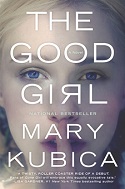
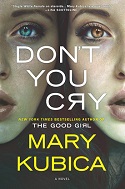
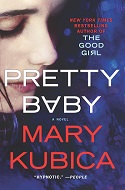
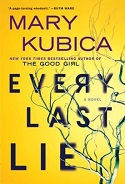
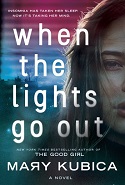
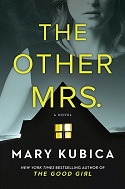
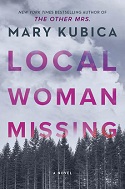


Comments are closed.